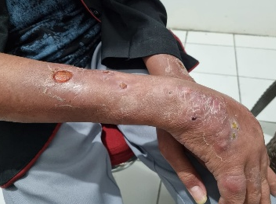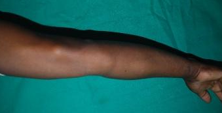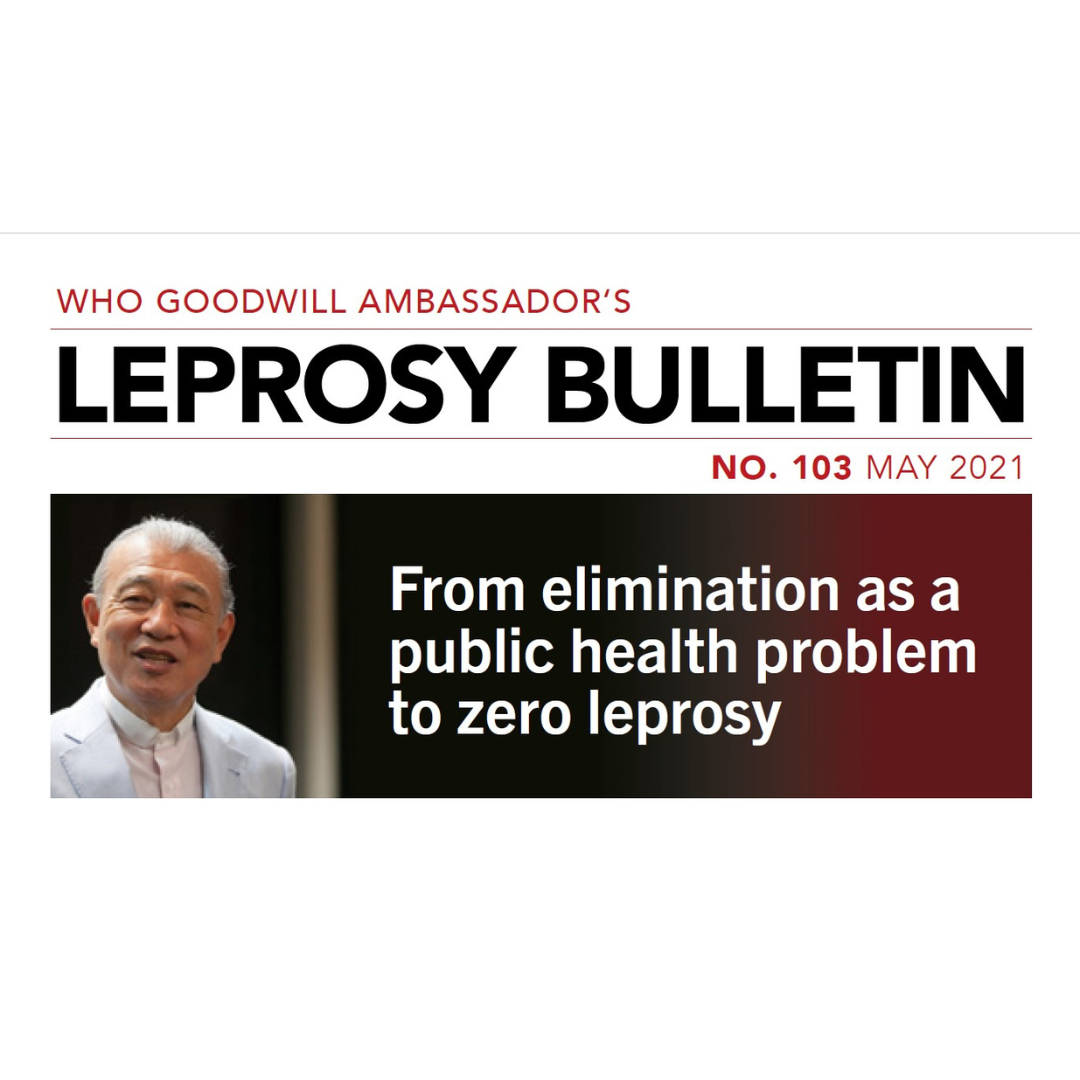
Dr. Venkata Ranganadha Rao Pemmaraju
Program Advisor for Medical Issues
Sasakawa Health Foundation
As an epidemiologist and Acting Team Leader of WHO’s Global Leprosy Programme, Dr. Pemmaraju contributed to the development of effective global strategies for elimination of leprosy. He joined the Sasakawa Health Foundation as a program advisor for medical issues in July 2023.
Leprosy, also known as Hansen disease, is a chronic infectious disease caused by Mycobacterium leprae (M. leprae) or, less commonly, Mycobacterium lepramatosis. Multidrug therapy (MDT) is the recommended treatment for the disease. At any time following infection – before, during, or after MDT treatment – an immune response can cause acute inflammation that affects the skin, nerves, and other organs of the body. When left untreated or improperly managed, these immune responses, known medically as “immune-mediated leprosy reactions,” can result in disabilities, serious complications, or even death.
There are two main types of immune-mediated leprosy reactions: Type 1 (reversal reaction) and Type 2 (erythema nodosum leprosum, ENL).
Type 1 (reversal reaction)
A Type 1 reaction is caused by hypersensitive reaction to the M. leprae antigen, and it is characterized by acute inflammation of skin lesions. Enlargement of cutaneous and peripheral nerves causes pain and tenderness as well as loss of function. When treatment is not provided promptly, the nerve impairment results in sensory loss and muscle weakness in the eyes, hands, and feet, and further disabilities may develop as well.
Type 2 (erythema nodosum leprosum, ENL)
A Type 2 reaction involves the deposition of immune complexes in tissues by M. leprae antigens and the patient’s antibodies. The complexes appear mainly under the skin, often as painful nodules. In some patients, this reaction becomes chronic and recurrent. Nerves and eyes can be involved, and without prompt and effective management, a Type 2 reaction can lead to disabilities.

Neuritis
While Type 1 and Type 2 reactions produce obvious symptoms, inflammation of the peripheral nerve system called “neuritis” can sometimes be “silent.” The absence of warning signs such as pain or tenderness reduces the probability of prompt diagnosis and therefore increases likelihood of progression to disabilities.

Treatment and support
Treatment regimens for reactions and neuritis consist mainly of prednisolone, a steroid for lowering the body’s inflammatory response. For chronic and recurrent Type 2 reactions, other anti-inflammatory drugs like clofazimine and thalidomide are recommended [1]. In addition to medicines, WHO recommends periodical nerve function assessment as well as physiotherapy and psychological aid.
Adverse reactions to the drugs used in treatment of immune-mediated leprosy reactions continue to be a challenge. Many studies have reported serious adverse drug reactions to prolonged use of steroids, and data from different countries indicates that a proportion of patients have developed steroid dependency. There have been reports of comorbidities, such as diabetes, as well as a very small number of deaths.
From the perspective of persons affected by leprosy, these reactions, especially when they recur, can cause a feeling of hopelessness. Family members and other primary care givers may feel anxious and overwhelmed, especially if they have not been told about reactions and how to respond. Obscure referral and follow-up processes can delay access to services.
Management of reactions, neuritis, and disabilities are a key part of WHO’s Global Leprosy Strategy [2]. National health programs should (re)commit to recognizing immune-mediated reactions in leprosy promptly and to managing them holistically with medicines, physiotherapy, and psychological support. Persons affected by leprosy, who have experienced the disease and understand the challenges of navigating the local medical system, should be considered for roles in referral, follow-up, and counseling. Patients and their family members should be advised about the possibility of reactions and the need for prompt treatment.
References
[1] World Health Organization, “Leprosy/Hansen Disease: Management of reactions and prevention of disabilities” (2020), https://www.who.int/publications/i/item/9789290227595.
[2] World Health Organization, “Global Leprosy (Hansen’s disease) Strategy 2021–2030” (2021), https://www.who.int/publications/i/item/9789290228509.








-552-×-348-px-Instagramの投稿(正方形).png)
